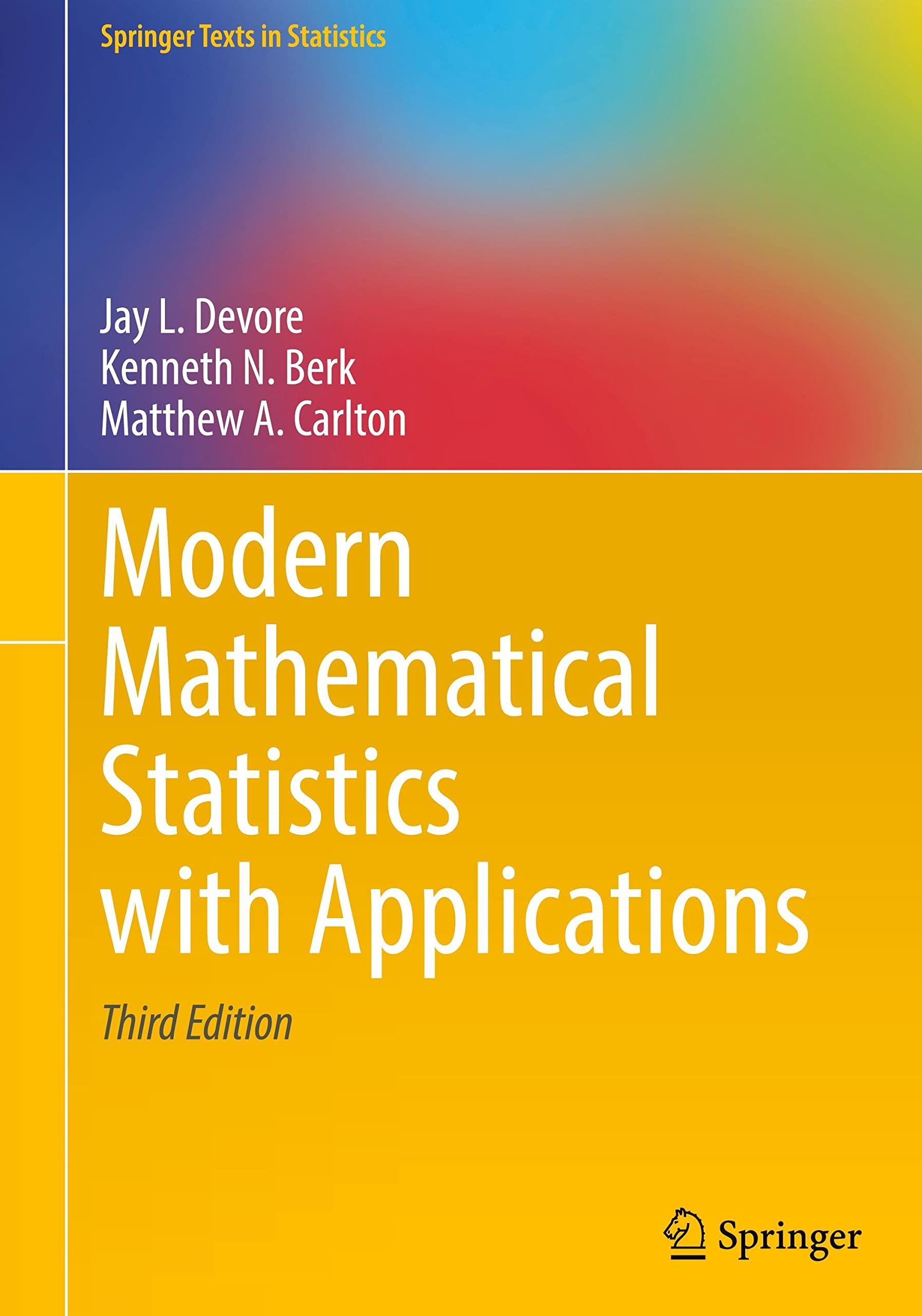Laplaces rule of succession says that if all n Bernoulli trials have been successes, then the probability
Question:
Laplace’s rule of succession says that if all n Bernoulli trials have been successes, then the probability of a success on the next trial is (n + 1)/(n + 2). For the derivation, Laplace used a Beta(1, 1) prior for the parameter p.
a. Show that, if a Beta(1, 1) prior is assigned to p and there are n successes in n trials, then the posterior mean of p is (n + 1)/(n + 2).
b. Explain (a) in terms of total successes and failures; that is, explain the result in terms of two prior trials plus n later trials.
c. Laplace applied his rule of succession to compute the probability that the sun will rise tomorrow using 5000 years, or n = 1,826,214 days of history in which the sun rose every day. Is Laplace’s method equivalent to including two prior days when the sun rose once and failed to rise once? Criticize the answer in terms of total successes and failures.
Step by Step Answer:

Modern Mathematical Statistics With Applications
ISBN: 9783030551551
3rd Edition
Authors: Jay L. Devore, Kenneth N. Berk, Matthew A. Carlton





